Abstract: Our Constitutional order was established to be legitimated by Reason rather than Religion. The Jeffersonian “separation” of religion from government, however, could not be filled by Reason alone. A “civil religion” arose to provide a general transcendent basis for our Constitutional Republic. Both our heritage of Reason and this Civil Religion are now in grave disarray, threatened by a return to patriarchal Christianity. This talk explores the nature of this crisis and formulates some possible responses to this major challenge.
Presented to the Ethical Humanist Society of Asheville, NC, via Zoom on June 21, 2020.
***
Presentation: “Religion and the Republic: Parent, Prophet, or Problem?”
We are in the midst of a Constitutional crisis. Americans are not merely disputing governmental policies, our selection of public officials, or the status of agencies of government. They are disputing the very legitimacy of established Constitutional norms, values, procedures, and long-established institutions. Conspiracy theories, claims of fraud, hoaxes, an avalanche of lies from public officials, and enormous disparities between public opinion and governmental outcomes all work to undermine the very legitimacy of the Constitutional order. Running all through these conflicts are the historic fault lines of slavery, racism, and exploitation of the land through genocide and marginalization of its native peoples. All of this is compounded by the Coronavirus calamity, which has torn the lid off this cauldron of chaotic forces, and now by the explosive confrontations over long-sanctioned police brutality against people of color.
In this hour I would like to offer my perspective on this problem of legitimating our public order and ways we might address it in the coming months and years. Let’s start with the basic observation that human organization exists along a spectrum from an order shaped by the exploitation of violence and fear at one end to one based on agreement and persuasion on the other. In order for governments and other large-scale organizations to function largely on the basis of persuasion and agreement—that is, non-violently—they have to be able to appeal to deep common bonds and beliefs. That is, they have to cultivate legitimacy—the capacity to ground the exercise of power in an authority anchored in deep common convictions.
Our own constitutional order arose with a two-fold purpose: first, to overthrow the concentration of authority in a single ruler, whether king, despot, tyrant, or dictator, and second, to escape the violent conflicts over the form of legitimation that had been provided by the Christian church to European governments for almost fifteen hundred years. The two were intertwined, because Christianity had largely upheld monarchy as the God-given order of government in the course of its 1500-year union with the Roman empire and its successor regimes. The God presented by the Church was seen to be the parent of the political order, which sought to emulate God’s unity of omnipotent power and authority. No one summarized this better than King James I of England and Scotland, with his appeal to the divine right of kings in the early 1700s.
For legitimation of the new American republic, however, the founders turned to the commitments to reason and scientific inquiry cultivated in the Enlightenment movements in Scotland, France, and Germany. At the same time, they appealed to theories of social contract and covenant that had grown up in congregational churches, political unions, trade associations, and entrepreneurial enterprises. Reason and solemn agreement would constitute the bedrock of legitimation for the fledgling republic.
These two foundations of legitimacy appealed to the “Laws of Nature and Nature’s God,” to “self-evident truths,” “inalienable rights,” “consent of the governed” and agreements of “We, the People.” When pressed to religious language they appealed to Providence or the Supreme Judge of the World, not to specifically Christian language. Rather than appeal to the will of patriarchs and fathers, they appealed to the truths arising out of evidence accessible to all and expressed in common agreements to form organizations with specific and limited powers, including governments. Because scientific inquiry and human negotiation is an ongoing process rather than simply the elaboration of a fixed creed, the emerging Constitution provided explicit means for constant amendment if not outright reconstruction.
But there were always deep fault-lines underneath this cultural ground for the new republic. The first was that the edifice of reasonable argument and negotiated agreements among equal citizens always existed in tension with appeals to a fixed biology and “nature” as the legitimating bedrock for social order. Gender and race remained deeply held assumptions constantly colliding with appeals to individual equality, reason, voluntary agreement, and evidence-based argument. The supposed necessities of biology always stood ready to crush reasonable appeal to new scientific evidence. The legal elimination of slavery took eighty years, women’s suffrage 133, and efforts to repair the genocidal attack on native populations have always been faltering and intermittent. Moreover, behind the mask of racism and gender inequality always lay the quasi-biological appeals to ethnicity and nativism.
The second seismic instability lay in the latent authoritarianism of traditional religion, which Thomas Jefferson tried to exclude from the public sphere by his famous “wall of separation.” Behind that wall, the churches and other religious groups were to cultivate a personal piety that would motivate individuals and religious agencies to public service, whether through altruistic appeals to build a New Israel or the Kingdom of God itself or through rousing the fear of hell, judgment and damnation made vivid in sermon and revival throughout the nineteenth and early twentieth century. The King of kings extolled in Handel’s Hallelujah Chorus became enthroned in individual souls. The patriarchy of Biblical rulers retreated to the neo-Gothic chapel and the middle-class home in a faux-Tudor subdivision. Monarchy was domesticated and reduced to a psychological metaphor. But devotion to the Biblical template of a resurgent messianic kingship has always lain like a deep and explosive magma under the mountains of our secular and rationalistic constitutional order. Sometimes it emerged in prophetic efforts to perfect the Constitutional order through abolition of slavery and uplift of the poor workers streaming to these shores. More recently, however, it has taken on the face of a theocratic nationalism that seeks to overturn the Enlightenment traditions of secular constitutionalism.
Because of the spirit of Jefferson’s “wall,” traditional Biblical religion had to be augmented by a “civil religion” (Jean-Jacques Rousseau’s term) to provide some legitimation for the rational aspirations of the new-born secular republic. As Sidney Mead, Robert Bellah and other observers pointed out in the later twentieth century, the Constitution became our own hallowed Torah; commemorations of battles, places, achievements, and leaders came to occupy a liturgical calendar of semi-sacred events—July 4 and Memorial Day being pre-eminent—and Gettysburg, and the Washington and Lincoln monuments became revered sacred places. And then, of course, there is the American flag. Even as we note the sacred significance of this flag, we see on the other side of the Civil War’s divide the Confederate battle flag and the legion of monuments all across the defeated Confederacy that continued to house and clothe the symbols of racist white supremacy that lay like hot embers to be fanned into flame by demagogues from George Wallace to Donald Trump.
In the culture wars of the latter twentieth century the civil-religious underpinnings of the national constitutional consensus began to erode. The meaning of the flag was hollowed out by its reduction to military functions and the Constitution was reduced to narrow appeals to its Bill of Rights rather than to the broad covenant of the preamble to “form a more perfect union, establish justice, insure domestic tranquility and secure the blessings of liberty to ourselves and our posterity…”
The collapse and fragmentation of this cultural civil religion has also released the theocratic impulses that lay in the domesticated biblical religion of patriarchs, kings, hierarchy, miracle and apocalyptic. A God with the lineaments of a despot—unconstrained, all-powerful, omniscient, retributive and mysteriously gracious—could re-emerge to begin breaking down the delicate separation of powers, the norms of reasoned debate, negotiation, compromise, and of a republic ordered by law.
At the same time, reason itself was being attacked not only by the traditional religion of revealed faith, but also by academics, whose critique exposed the myriad of social and economic interests that have been advanced under the cloak of reason, whether by Constitutional Founders like Jefferson, Madison, and Hamilton, or contemporary public voices funded by financial, political, manufacturing, or cultural elites. A critical awareness of the ideological uses of seemingly reasonable arguments led to a wholesale abandonment of the effort to engage in argument resting on deep common assumptions grounded in the verifiable findings of scientific inquiry. The transcendent Truth that ruled the Enlightenment enterprise in science and politics succumbed to the gnawing uncertainties of the sociology and psychology of knowledge. (Al Gore’s The Assault on Reason (2002, second edition 2017) delineates the sources and effects of this desiccation of reason as the web of unity in our public life.)
It should be no surprise that out of this dissolution of civil religion and the reasoned truth of republican aspirations we should now be faced with demagogues, con-artists, and amoral dictators, not only in our own country but around the world where the seeds of democratic republican life have been planted in the past two hundred years. It is exactly what our own founders feared as they erected the constitutional structure that has governed us since 1787. That it has both farcical faces in social media as well as sinister hands of thuggery in the darkened halls of power does not lessen the peril we are in.
So, as Martin Luther King, Jr., wrote in the uncertain turmoil of the civil rights movement, Where do we go from here? We face the enormous task of re-grounding our civil and constitutional order so that it might better order our lives toward the justice, peace, and sustainable economics demanded by our highest moral understandings.
In charting the way ahead, we need to recognize that we are not speaking here of having some progressive policy positions or Constitutional adjustments. We are speaking here of the cultural grounding that makes it possible for us to arrive at these policies and Constitutional amendments.
We also need to recognize that this is a shared cultural work between the deep religious traditions of our land and the Constitutional culture that has grounded our civil life over the past two and a half centuries. While these two spheres may be separated by a wall of some sort, they need to be able to talk, to sing together, to listen to each other’s voices if we are to engage in this work of reconstruction.
Let me point to three initiatives that require our attention: A reconstruction of our sense of being a “people” engaged in a republic seeking the common good; a religious effort to rework the images of God at the heart of our worship lives; and a deepening sense of the ecological framework necessary for our survival and flourishing with the rest of creation.
Reconstructing “We, the People”
The Constitutional order constructed in the late eighteenth century appealed not to God or to religion for its legitimation but to “the People.” This appeal hearkens back to the ancient Roman appeal to the Senatus Populusque Romanus (SPQR) at the heart of their effort to build and sustain a Republic. The ancient formula held “Vox populi, vox dei”—the voice of the people is the voice of God. This voice of God authorizing and legitimating government was being taken from the kings and the Church and given over to this alternative voice of the People.
What, however, is meant by “the people”? Is it the mob of detached individuals sought out by the demagogue to inflame and arouse? Is it all the people—the demos? Without any canonical meaning, “The People” has remained throughout republican history a vague ether animating the inhabitants of a land without regard to their historical institutions, constitutions, or laws. In our own time it has been used to justify practically unlimited “keeping and bearing” of firearms that can intimidate lawful assemblies and legislators alike. Or it can be reduced to the sum total of votes to elect one or another candidate to public office.
However, if we look at the way “the people” was used in Revolutionary America, we can see that it is more than an incoherent vacuity. “The People” may have been an almost mystical concept akin to that of God Himself (or is it Herself? Godself?), but in its historical incarnation it took the form of public assemblies. “The People,” as Hannah Arendt pointed out in On Revolution, were assemblies of roughly equal persons who engaged in conversation, argument, persuasion, and negotiation to establish institutional instruments to achieve their common goals. They were largely face-to-face meetings in local settings. A national articulation of such a popular assembly would require a federal order of interlocking constitutions. Federalism and republicanism required each other if “the People” were to gain enduring institutional forms.
This conception of public deliberation also required a degree of education and intellectual training that excluded a lot of people and became the basis for excluding whole categories of people—enslaved adults, women, children, the impoverished, and so on. The challenge has always been to make the public more democratic, but this is as much a cultural work as it is a matter of changing election laws.
In short, we need to recover the features of local assembly that constitute a workable meaning for “the People” and wrest it away from its individualistic or mass-democracy perversions. What is needed, as Al Gore pointed out earlier in The Assault on Reason, is a communication system that enables widespread conversation while at the same time promoting the mutual accountability that informed the small-scale assemblies of the towns and villages across America. We need to move from the one-way mass communication driven by large corporate interests to forms of communication that are person-to-person and that enable people to participate in the work of self-government. This is a responsibility both for our schools and for the corporations and governments that shape our communication internet.
Transforming Images of God
The task for the religious side is even more complex. While our dominant religious voices have come out of the Jewish, Christian, and now Islamic people of Semitic revelations, a host of other voices—Native American, Hindu, Buddhist, and inspired assemblies of all kinds—now claim a place in our public life. The core question that needs to be advanced, in spite of the many difficulties and dangers this presents, is to ask the question: What are the fundamental images that lie at the core of your (and our) devotion? How do these images shape, vitalize, or undermine the deepest loyalties we bring to the task of building public consensus or upholding the constitutional order of our civil life?
Specifically, how do we deal with the despotic imagery associated with the God of the Bible or the Qur’an in the light of our struggle to ground our common life in reason, law, persuasion, mutual empathy, and the civil virtues? There are alternatives in our religious traditions to this classic despotic God of arbitrary power, retribution, and monolithic unity, whether in the lives and teachings of important prophetic figures, mystical movements, theological speculation, or the “heresies” and dissenting voices in all these traditions. Each religious tradition and sub-tradition needs to have that conversation, both internally and with others, to continually re-create religious imagery, worship, and practice that can critically engage the public life of a constitutional republic. For me to say more here would be to launch a long conversation, indeed, but this is the task I see before us, one that has already been underway in various forms in religious life.
Sustaining the Ecology of the Republic
The third task is to take very seriously the ecological crisis we are in, one that is not unrelated to the pandemic that has us in its grip today. Here, the intellectual commitment to scientific truth struggles with attacks on many sides. But, as Al Gore said in another context, as “inconvenient” as this truth of ecological destabilization is, we have to be led by our best science in order to deal with it effectively. Even as the general belief in a Truth apart from the machinations of power has been dulled, and as the common glue of a Civil Religion has yielded to the ethnic nationalism and despotism infusing many images of our traditional religions, a new image of Truth is slowly dawning in our public discourse. It is the truth that the world is inextricably linked into one eco-system of which human beings are a part. In the Greek language, we are all part of one oikos, one “world-house” (oikumene) one oikonomia. The coronavirus knows no distinctions of nation, party, age, gender, polity, or economic order, just as the atmosphere laden with pollutants and carbon dioxide fills the life of every living being. It is this core truth that might begin to vitalize both a new kind of civil religion as well as dedication to the scientific enterprise that seeks understanding in its light. More than anything else, it redefines what we mean by “the common good,” what it means to be a people united in a public argument over how we are to live together, and what it means to sacrifice our short term greed for the long term benefit of the whole planet and generations to come. This is the core of civil life that we have sought to live out in a constitutional republic with widespread democratic participation. This can only happen if we cultivate a bedrock of common core commitments that can make possible the Constitutional framework of our deliberations and our coordinated action. It is a task with cultural, religious, scientific, and political dimensions.
I hope that in this conversation we can move beyond the polarities between authoritarian, despotic religion and secular, scientific governance to a constitutional order grounded in a vast creation that is mysterious and awesome as well as continually open to a scientific understanding of our role in it.

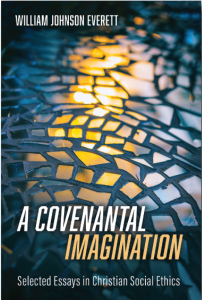
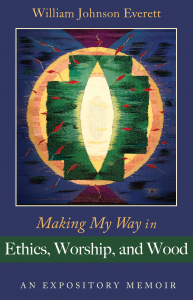
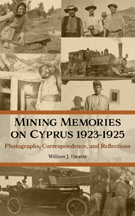
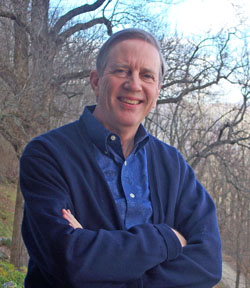
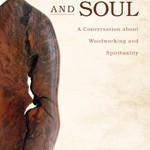
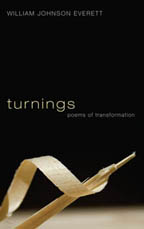
 Red Clay, Blood River
Red Clay, Blood River